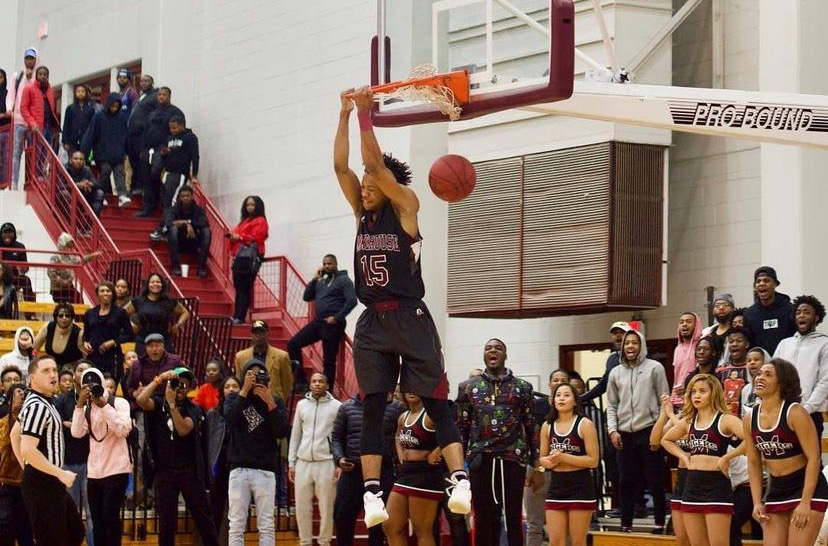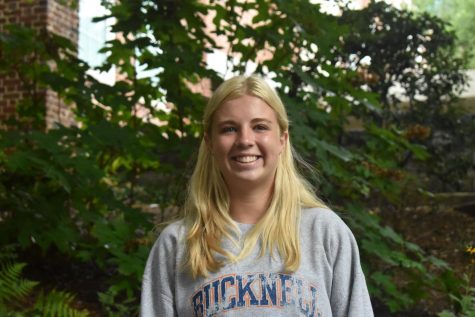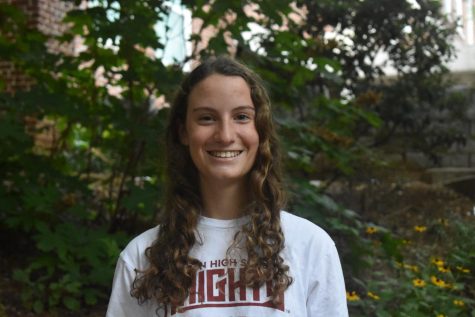Sports provides greater opportunities
Courtesy of Martravious Little
Martravious Little dunks during one of his collegiate basketball games at Morehouse College.
December 11, 2022
Tyrius Walker was thinking of quitting basketball in May of 2014 when Grady Brewer, the head basketball coach at Morehouse College knocked on his grandmother’s door and offered him a full ride scholarship.
Morehouse is a Division II, all-male, private, historically black college (HBCU) in the Atlanta University Center. Going to Morehouse costs up to $200,000 for four years, and it is ranked fourth among HBCUs academically.
Walker put his trust and his future in Brewer’s hands, and capitalized on an opportunity that eventually led him to the NBA on the New York Knicks’ practice squad and a position with the Westchester Knicks, part of the NBA G League.
“It was a tough process, only because I was supposed to commit to Jackson State University, but the old coaches left; they got fired and no one let me know, so I actually thought about giving up basketball and getting a regular job or not even going to college,” Walker said. “Thanks to Grady Brewer, he told me to not give up. He told me he was going to give me a full ride and trust him and trust God. That process was definitely a tough one because I thought about not playing anymore because it wasn’t just handed to me, it was a last-minute offer. I was checked out mentally, but if it wasn’t for Coach Brewer, I don’t even think we would be having this conversation right now.”
Similarly, Martravious Little, the Midtown girls basketball coach, attended Morehouse, and was able to pay for school with a scholarship to play collegiate basketball.
“I was a first generation college student, and we didn’t understand how we were going to pay for school,” Little said. “We didn’t understand the financial aid side of school. When I was getting recruited and my coach offered me this scholarship, I was like ‘wow.’ My freshman year I had to take out a little bit of a loan, but my junior and senior years of school were completely paid for and that was just off of my athletic abilities. I have a younger brother who is right now in school, and he is getting school completely paid for. The athletic side of sports can open so many doors for students to be able to reach maximum potential.”
According to the NCAA, there are 8 million high school athletes in the United States. Participating in high school sports provides athletes with numerous benefits, including education, financial opportunities, life skills and mentorship.
Educational Opportunities
Coach Augustus Pritchett of the Mercury Track Club, who has worked with generations of Atlanta Public Schools athletes, said education is one of the greatest benefits of playing sports.
“We are trying to tell the kids, reach for the education,” Pritchett said. “It’s okay to get a free education, regardless of your background. If you have a skill, use your skill to benefit your way of life.”
Academics provides an alternate route if athletes get hurt or cut from their collegiate team. Walker believes Morehouse’s rigorous schooling, in addition to his sport, allowed him to maximize his college years.
“It’s all about education first. If you are not doing what you are supposed to be doing in the classroom, there is no playing time on the court; there is no scholarship; you can lose your scholarship, so I am glad that I chose Morehouse and Morehouse chose me,” Walker said. “That was the right decision because at the end of the day, I had something to fall back on. They didn’t really care about sports like that, and I’m glad that they didn’t. You can do both.”
Atlanta Public Schools Athletics Director Jasper Jewell said his coaches also taught him things outside of the classroom, providing valuable mentorship.
“My high school football coach — next to my father — helped shape and mold me into the man that I am now in terms of hard work, in terms of work ethic, in terms of value system and what it means to work with and for a team,” Jewell said.
Walker agrees, attributing much of his success professionally to his past coaches.
“They[my coaches] ended up being big brother figures, father figures, mentors, all in one,” Walker said. “They were the ones taking me to practice, taking me home, feeding me, just doing what they knew was going to help me trust them and stay focused, believe in myself. So, I trusted them, once you see that they believe in you and see that they would do anything for you and want the best for you, that it was all genuine love, it makes you go harder on the court. Honestly, if it wasn’t for my coaches, as well, I probably would have never made it to the NBA.”
Now, as a coach himself, Jewell tries to do the same that his coaches did for him for his own athletes. Jewell, who attended Therrell in APS, was the head football coach at Miller Grove in DeKalb County before becoming an athletic administrator in APS.
“I still keep in contact with a lot of my former athletes; I was like the second father to them,” Jewell said. “I was like the big brother to them because I always held them accountable for all of their actions. I always told them to keep God first, surround yourself with positive people, and always obey your parents.”
Walker urges future athletes to continue pursuing their athletic passions, even in the face of adversity, due to the benefits available.
“Never give up, stay hungry, just have hope,” Walker said. “Have a purpose and stay motivated about that purpose. We can always forget why we are playing and things are not working out, or you are not getting the offers that you want, but it can be the last day, act like it’s the first day and stay motivated because you never know who will come calling to offer you a scholarship.”
Resource/Financial Opportunities
After college, a small percentage of athletes are able to play professionally. Professional sports can have significant impacts for athletes and their families. Pritchett has coached athletes who have seen success in many sports, including multiple first-round NFL draft picks and a boxing world champion.
“Let’s say a family with a very small amount of income is getting by,” Pritchett said. “A child has the opportunity to to move on to the next level in college and then on to professional sport, which would give that child the opportunity to become financially-balanced. Sometimes, if a kid is extremely successful, it’ll transform generations of that family.”
Earthwind Moreland, a 1995 Grady graduate, played collegiately at Georgia Southern before signing to the New England Patriots, were he started two out of nine games in the 2004-2005 season. Moreland is now head football coach at Mundy’s Mill in Clayton County.
“If you’re able to go professionally, it provides you a jumpstart to get a salary that is on a whole different scale that you normally wouldn’t get in just a regular nine-to -five, especially if you’ve reached a certain level. Also, it would allow you the opportunity to meet new people. You’re able to go to certain places that only, as they call it, `elite people,’ are invited to. It gives you the opportunity to do those things that you were at one point in awe of, you know, but at the same time, professionally, you’re in that 1% that everybody can’t be.”
Playing professionally provides resources and contacts that players can use in their future endeavors, like coaching and recruiting.
“Don’t let it use you, and what I mean by that is, you know, use it for many opportunities to connect with other people and do other things because the reality is you can’t do it all of your life, but use it to make other connections to further your life after sports is over,” Moreland said.
As a collegiate or professional athlete, growing your “platform” can also lead to greater opportunities, athletically and financially.
“Playing sports on the collegiate level, as well as on the professional level gives a bigger platform for athletes,” Little said. “It opens different avenues for being able to get word out about different things. A small-town player isn’t used to that, but when you are at the collegiate or professional level and you can become well-known, that can also bring on income for those who would not before. Playing collegiately or professionally can help you with social media, notoriety, as well as getting those NIL’s or getting those different deals signed to bring on monetary value.”
In July 2021, collegiate athletes were allowed to start using or marketing their name, image, and likeness (NIL) to make money through brand deals or promotional activities. Today, collegiate athletes from all divisions and sports can capitalize on this financial process.
“Financially, of course, the NIL’s, the more known you are, the more deals you get,” Little said. “When NILs first came out on the collegiate level we saw that it was mostly the Power 5’s that were getting them, the big schools, but now when you have people like Deion Sanders who’s over at Jackson State and Shedeur Sanders, his son, the quarterback. Then you have these Howard (University) players, these different collegiate athletes are getting big-time money for their notoriety through social media and their platforms.”
Midtown football coach Darrell Howard believes the NIL deals should have always been available to all athletes, and can provide financial help to those who might need it.
“I wish that athletes on every level could utilize that [NIL] to their advantage,” Howard said. “ I feel like being an athlete, being a coach, what we are doing everyday is branding our team, branding ourselves, branding our schools. It’s a form of branding. It should have been allowed years ago [for collegiate athletes]; I think it’s a great idea. We have these collegiate athletes, high school athletes that are pretty much playing the game off of love, off of passion, but maybe go home to an empty house, or a house of no food. This provides preservation and monetary gains. What I hope to see in the future with NIL is more companies, more local businesses willing to take a risk and sponsor a kid.”
Because of the fluid, ever-changing nature of high-level starting players and team rosters, athletes must work hard every day to ensure their starting spot and scholarship.
“The opportunity to play at a higher level allows athletes to see that, ‘I continuously have to work hard at my craft,’” Little said. “These different scholarships, they are one-year scholarships. They dont give four year scholarships anymore. Each of these contracts are renewed each and every year, so coaches are always trying to recruit over you, trying to bring in somebody that is better. When you are an athlete and you get to the college level as well as the professional level, it teaches you that nothing is guaranteed; you are always trying to prove yourself and that helps you in life, because now you are always trying to prove yourself.”
Even if athletes don’t get to the professional or college level, sports provide other financial opportunities for them.
“[Sports] can lead you into opportunities whether you’re talking about sports agency, about broadcasting, about sports management, athletic administration — there’s so many different fields that you can go to, that could be caused as a spin-off from being involved in athletics,” Atlanta Public Schools Athletics Director Jasper Jewell said.
Walker uses his professional and collegiate experience, as well as the connections he made, to help others make it to the next level.
“Right now I have gotten at least four players into college, especially at Morehouse, players that didn’t have big-time offers or no offers at all, even in football. I told them that I can help in any way,” Walker said. “I can use the connections that I made in my career to help them be able to get a scholarship. I actually brought a lot of Grady [athletes] from football and basketball to Morehouse. So, that was my whole goal, was to just make a way for them. I knew I was one of those kids that almost gave up, and for good, to put a greater good in my life, I feel like maybe my love and God’s intentions for me was to give the same thing he gave to me to someone else.”
Providing a positive environment/life skills
In addition to the academic and monetary gains, participating in sports provides a positive outlet and environment for all athletes.
“I had a family structure in terms of a very supportive mother and a very supportive father, but a lot of my friends and a lot of my environment that I grew up around and in, they succame to a life of drugs and crime,” Jewell said. “I don’t know how, had it not been for sports and athletics in my life, I don’t know if I would have turned out to be a productive citizen. I may have gone down a negative road. So, I just thank God for the coaches; I thank God for my parents, and I thank God for the people that always pushed me into being an active part of athletics.”
Jewell said sports teach athletes valuable life skills that they keep even when they stop playing.
“Being a part of sports teams teaches you to be accountable, be held accountable, be somewhere on time, complete the tasks that are put before you,” Jewell said. “These are all things that you’re trained in, in your life, in the workforce, in relationships, and growing up and raising children, and strengthening and being a part of a good community. These are the things that I learned and all the traits I learned from participating in athletics at an early age as early as 6 years old.”
Pritchett believes an athlete’s value system can impact whether or not they see success from their sport.
“I’ve only had three kids that I can really remember back; they couldn’t overcome the streets,” Pritchett said. “They couldn’t overcome what they thought the street was offering them. They couldn’t overcome peer pressure from the streets. These are good athletes. I feel what had happened, it didn’t happen in the middle of the transition in middle school. It happened in the early stages of elementary school.”
Sports give kids drive that applies to other parts of life.
“Whatever goes down, you can keep going in life,” Pritchett said. “If you lose the race, it’s okay that you lost the race. But if you did your best, all your best was given, then you don’t fail, then you won’t fail. It’s when you stop the race that you fail. If you don’t make a football team, if you don’t make the leap and you quit, that’s when you fail.”









